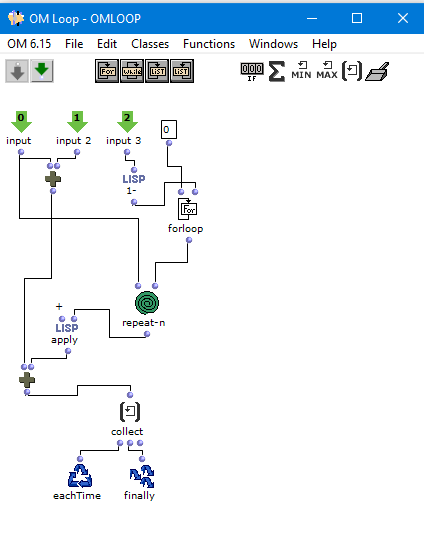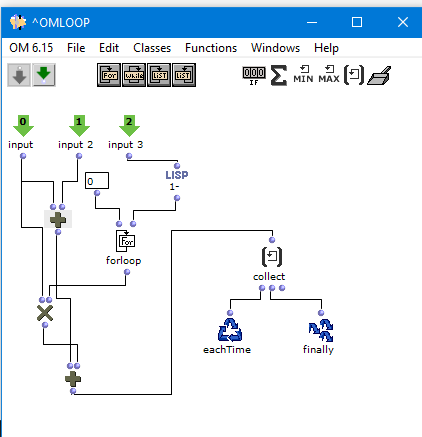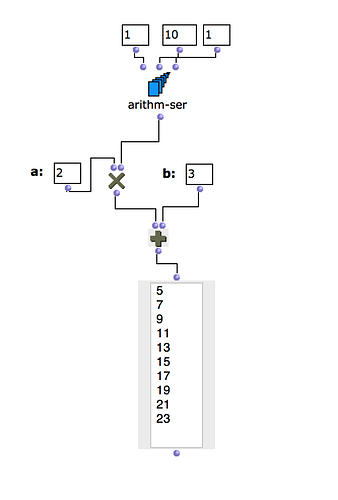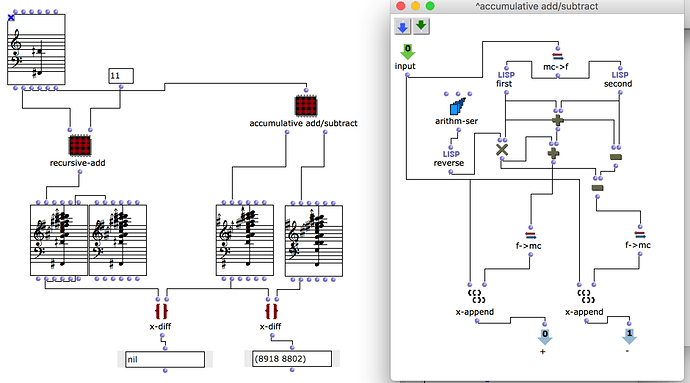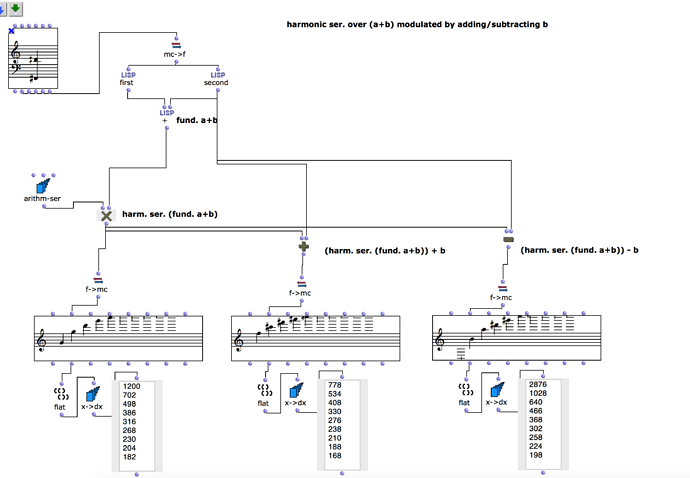Hello,
I’d be grateful for thoughts on how to create a patch for simple recursive equations in OM6. I’m not sure which path to take after looking through the forum and at omloop and tutorial 38 - I’m not so familiar with this side of OM but hoping it’s a trivial task.
I simply want to add two numbers, A to B, and then feed the result back to become B in the next iteration. So I expect I need 2-3 inputs (A and B or a list with them together, and the total number of recursions), and I want the patch output a list that collects the results of the addition for each iteration, so you get a+b, a+(a+b), a+(a+(a+b)) etc (it’s for a basic harmony technique like ring modulation).
Many thanks in advance for any pointers.
Cheers
Nick

